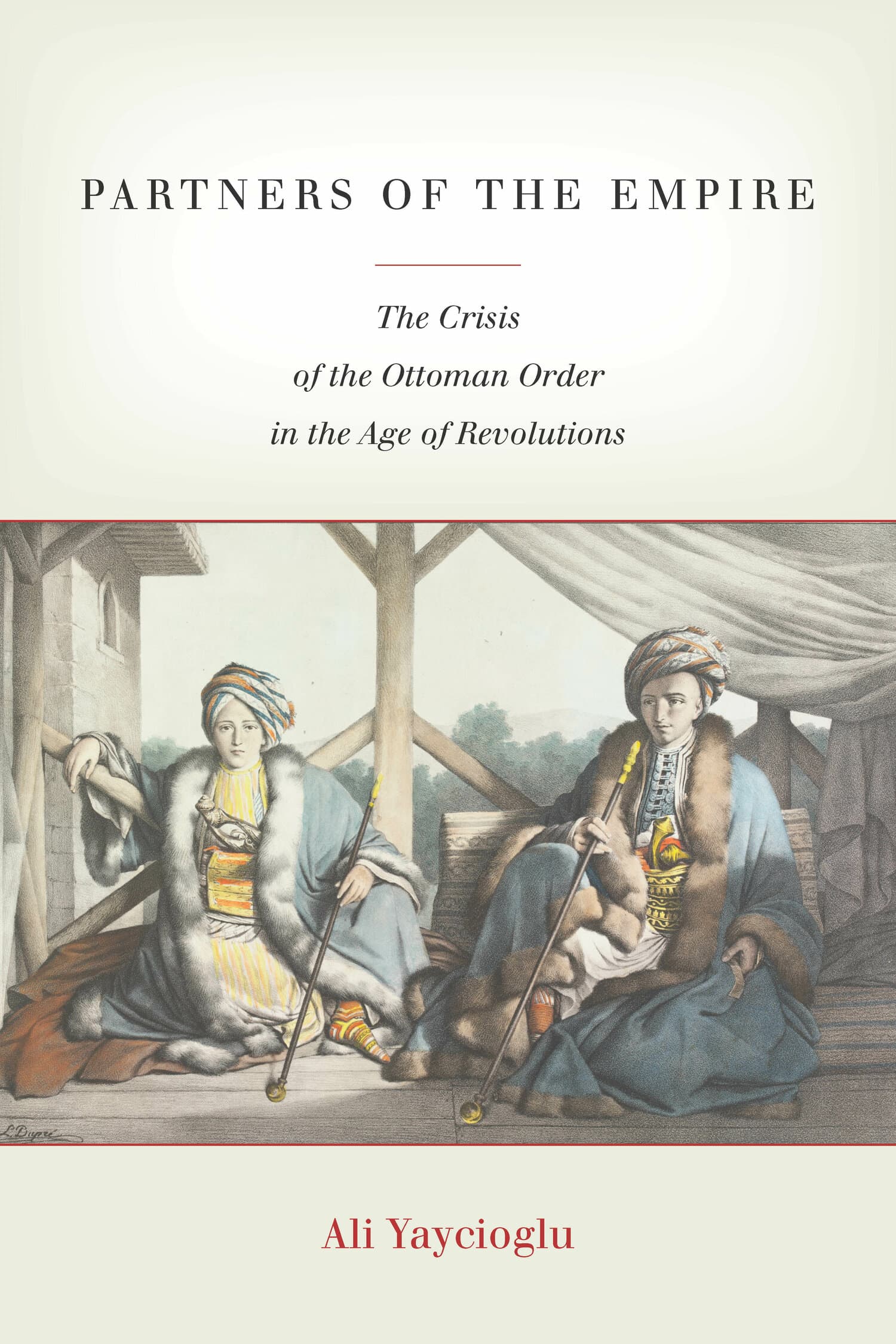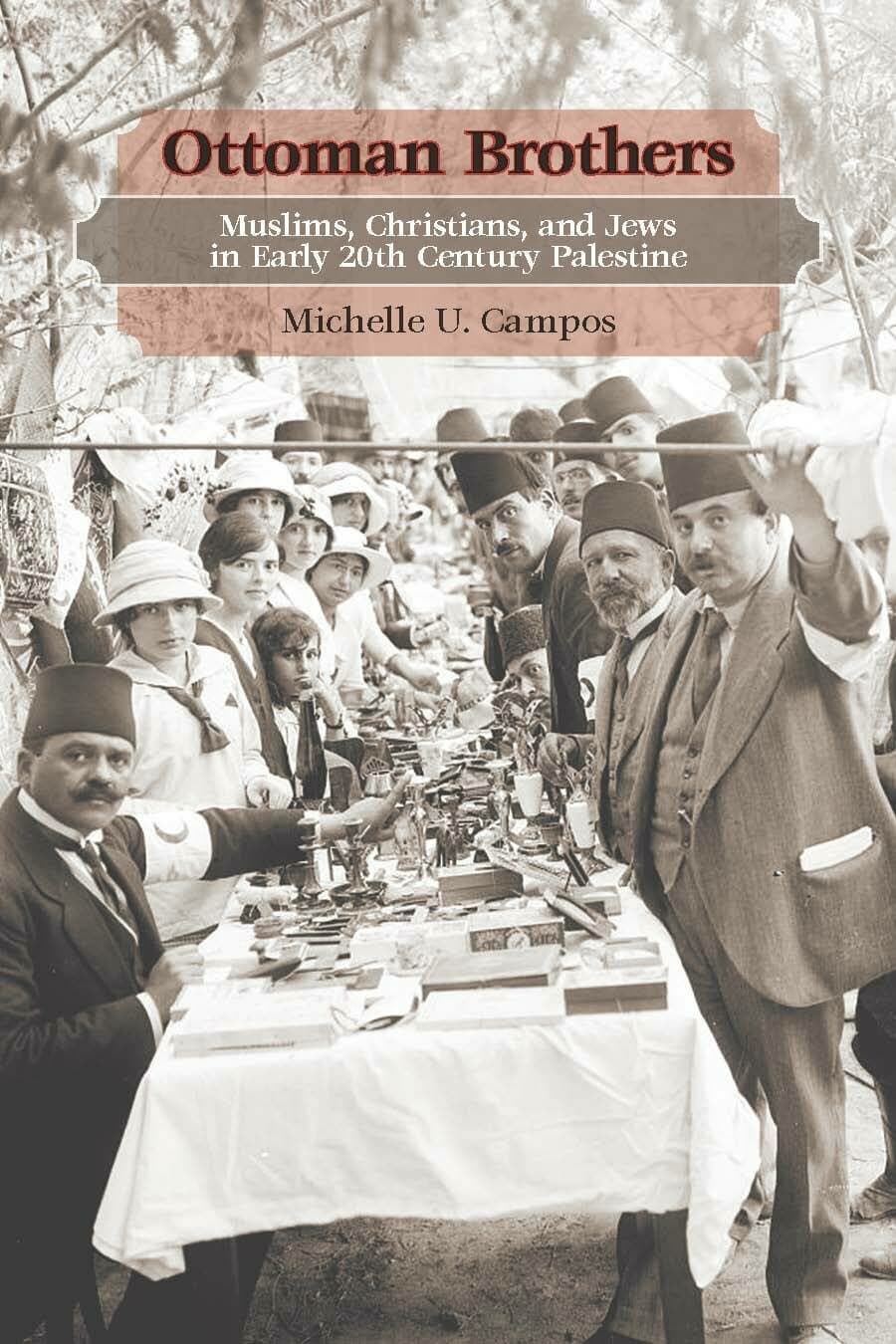Empire of Refugees
Award Winner
2024: Alixa Naff Prize in Migration Studies
Winner of the 2024 Alixa Naff Prize in Migration Studies, sponsored by the Moise Khayrallah Center for Lebanese Diaspora Studies.2024: Independent Publisher Book Awards (IPPYs)
Gold Medal in the History (World) Category for the 2024 Independent Publisher Book Awards (IPPYs).
Also Available from

Between the 1850s and World War I, about one million North Caucasian Muslims sought refuge in the Ottoman Empire. This resettlement of Muslim refugees from Russia changed the Ottoman state. Circassians, Chechens, Dagestanis, and others established hundreds of refugee villages throughout the Ottoman Balkans, Anatolia, and the Levant. Most villages still exist today, including what is now the city of Amman. Muslim refugee resettlement reinvigorated regional economies, but also intensified competition over land and, at times, precipitated sectarian tensions, setting in motion fundamental shifts in the borderlands of the Russian and Ottoman empires.
Empire of Refugees reframes late Ottoman history through mass displacement and reveals the origins of refugee resettlement in the modern Middle East. Vladimir Hamed-Troyansky offers a historiographical corrective: the nineteenth-century Ottoman Empire created a refugee regime, predating refugee systems set up by the League of Nations and the United Nations. Grounded in archival research in over twenty public and private archives across ten countries, this book contests the boundaries typically assumed between forced and voluntary migration, and refugees and immigrants, rewriting the history of Muslim migration in the nineteenth and early twentieth centuries.
—Dawn Chatty, University of Oxford
"Magnificent and magisterial. Empire of Refugees not only reveals the emergence of a new template for refugee flows in the modern world, but it also captures the human experiences of the refugees themselves: their sorrows, hopes, failures, and successes. A prodigious achievement."
—Michael A. Reynolds, Princeton University
"Empire of Refugees is a meticulously researched and imaginatively conceived history of mass migration that represents a genuinely fresh contribution to both late Ottoman history and global refugee studies."
—Laura Robson, Pennsylvania State University
"Through an impressive approach to history from below, Hamed-Troyansky provides voice and agency to the refugees who have so far been silent on the pages of history. Through meticulous use of archives, diaries, letters, interviews, and petitions in multiple languages, he provides new ways of understanding the refugees' experience(s).... The fascinating book should not only be considered a significant contribution to Russian, Ottoman, Caucasian, and Middle Eastern studies but also to the disciplines of refugee studies, diaspora studies, and genocide studies."—Bedross Der Matossian, American Historical Review
"Empire of Refugees offers a fresh take on the late Ottoman state and how the refugee question was a factor in many important events towards the end of the empire. A unique perspective on an under-explored topic, the book enriches Ottoman studies and makes for compelling reading for anyone interested in history."—Usman Butt, Middle East Monitor
"The book thrusts the North Caucasus firmly into the center of immigration and diasporic studies, and it reminds us of the contribution of Ottoman-Russian relations for the history of international law and humanitarian relief."—Lucien Frary, The Russian Review
"Empire of Refugees stands as an exceptional resource for anyone interested in global migration, refugee governance, and migration and resettlement policies. I highly recommend its inclusion in curricula for disciplines such as history, refugee studies, international relations, anthropology, and sociology."—Fulya Pinar, Critical Forced Displacement
"To tell this story, Hamed-Troyansky relies on a breathtaking diversity and depth of sources: twenty-three archives across ten countries, private papers and letters, and even interviews. He tells stories of imperial politics, local bureaucratic management, urban socioeconomic changes, and family microhistories."—Will Smiley, Jotwell
"Through meticulous interpretation and deft analysis of primary source materials written in the mutually unintelligible languages of the great imperial triad: the Caucasus, tsarist Russia, and the Ottoman Empire, this monograph emerges as a striking example of groundbreaking scholarship, which has already prompted shifts in our understanding of the entangled history of migration and displacement in the Caucasus region during the nineteenth and early twentieth centuries."—Sergey Salushchev, Journal of Caucasian Studies
"Hamed-Troyansky's main success lies in his combination of imperial and migration history. This juxtaposition allows us to comprehend how Ottoman and Russian rulers sought to avail themselves of the muhajirs while the latter equally sought to instrumentalize imperial structures in order to survive. As such, the title of the book acquires a facetted meaning ingeniously implied. Empire of Refugees undermines current myths surrounding migration and the political fronts surrounding it."—Paul Csillag, CEU Review of Books
"In Empire of Refugees, Hamed-Troyansky achieves something rare: bridging disciplinary divides and masterfully navigating challenging source material, he tells a truly transimperial history that combines the perspectives of different authorities and peoples."—Denise Klein, Turkish Historical Review
"Empire of Refugees is a study that compellingly intertwines the stories of the North Caucasian Muslims with imperial centralization policies and the global history of migration."—Enes Şamil Kiraz, Slavonic and East European Review
"Did you know that the Jordanian capital Amman was founded by Circassian refugees from the North Caucasus, and that the history of the Beşiktaş football club goes back to a Circassian gymnastics association? If you didn't, then you will find Vladimir Hamed-Troyansky's very readable monograph an eye-opener in terms of traces of North Caucasus refugee settlement in various parts of the late Ottoman Empire."—Michael Kemper, Journal of Islamic Studies
"Mining archives in multiple languages from across the region, Hamed-Troyansky compellingly argues that the Ottoman authorities set up a refugee regime to absorb the influx of these muhacirler (refugees) and that the resettlement of these refugees exerted 'a profound impact on both the survival and the demise of the Ottoman Empire'.... Recommended."—K. Mouradian, CHOICE
"Creatively employing the methodologies of historical anthropology and sociology, the book enriches Ottoman and Middle Eastern history, along with Russian imperial history, and provides compelling reading for anyone interested in history."—Jie Zhao, Ab Imperio
"By introducing a counterbalance to studies focusing on the interwar and postwar refugee regime, Empire of Refugees breaks new ground by illuminating the importance of the religious dimensions of migration and resettlement during the late Ottoman imperial era."—Fredrick Walter Lorenz, Mashriq & Mahjar
"The book is exceptionally well-written and meticulously researched, drawing on extensive sources from over 20 archives and local records. It employs top-down and bottom-up approaches and is one of the first works in its field to examine the resettlement of North Caucasians in three different regions—the Balkans, Anatolia, and the Ottoman Middle East—within a single study."—Caner Yelbaşı, Kadim
"V. Hamed-Troyansky [fait] partie d'une remarquable cohorte d'historiens qui se tournent vers l'histoire transimpériale pour répondre au défi d'une historiographie décentralisée des empires, au-delà des frontières traditionnelles des études ottomanistes et russes. Ils ouvrent la voie a de nouvelles conceptualisations des moderniteìs politiques non europeìennes, au-dela de l'alternative binaire entre Europe et Sonderweg civilisationnel."—Masha Cerovic, Annales: Histoire, Sciences Sociales




